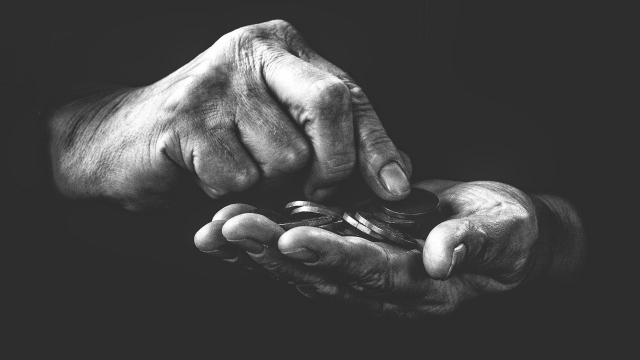Building a new economy

Listen to this daily worship
Matthew 20: 1-16 (NRSVA)
1 ‘For the kingdom of heaven is like a landowner who went out early in the morning to hire labourers for his vineyard. 2 After agreeing with the labourers for the usual daily wage, he sent them into his vineyard. 3 When he went out about nine o’clock, he saw others standing idle in the market-place; 4 and he said to them, “You also go into the vineyard, and I will pay you whatever is right.” So they went. 5 When he went out again about noon and about three o’clock, he did the same. 6 And about five o’clock he went out and found others standing around; and he said to them, “Why are you standing here idle all day?” 7 They said to him, “Because no one has hired us.” He said to them, “You also go into the vineyard.” 8 When evening came, the owner of the vineyard said to his manager, “Call the labourers and give them their pay, beginning with the last and then going to the first.” 9 When those hired about five o’clock came, each of them received the usual daily wage. 10 Now when the first came, they thought they would receive more; but each of them also received the usual daily wage. 11 And when they received it, they grumbled against the landowner, 12 saying, “These last worked only one hour, and you have made them equal to us who have borne the burden of the day and the scorching heat.” 13 But he replied to one of them, “Friend, I am doing you no wrong; did you not agree with me for the usual daily wage? 14 Take what belongs to you and go; I choose to give to this last the same as I give to you. 15 Am I not allowed to do what I choose with what belongs to me? Or are you envious because I am generous?” 16 So the last will be first, and the first will be last.’
Here is a parable Jesus told that sheds some light on his understanding of the purpose of economy. When we get through the present crisis wouldn’t it be great if we could reset the way we pay out wages and salaries, the way we finance our essential services. This parable reminds us that we all need a basic amount to live off. Could paying everyone in our community a living wage regardless of their ability to work, end up one of the generous insights from this time of enforced isolation?
When our experience of the value of work is reflected upon it will be those who worked or volunteered to serve without counting the cost, putting their own lives in danger, who will be remembered as invaluable. The parable is only a starting place for such a discussion. It opens up questions relating to fairness, loyalty, commitment and compassion. It also calls each of us to consider the importance of personal generosity and communal responsibility in building and owning economy in an interdependent world.
Building new economies
Lord,
I don’t want to flourish
If it’s at the expense of another
Help us build economies
Where everyone flourishes
Lord,
I can’t enjoy eating food
Knowing another is hungry
Help us build economies
Where everyone is satisfied
Lord,
How can I say all is well
When I know the effects of poverty
Help us build economies
Where everyone has enough
Lord,
We cannot turn our heads and hearts
From the injustice of Market Economies
Help us build new economies
Where everyone is valued and loved




 Add to Favourites
Add to Favourites








Login to comment.